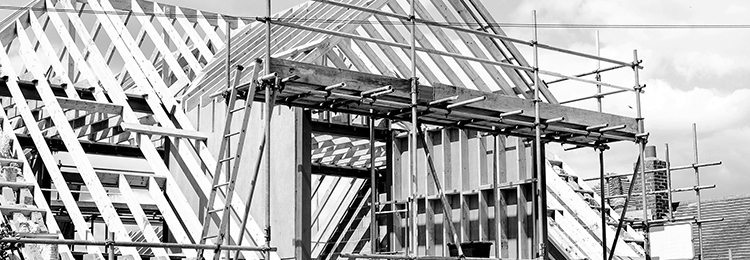Rapidly growing in relevance, job-site theft is an epidemic affecting contractors throughout the nation. It’s the perfect storm for the construction industry – booming demand in the residential and remodeling sector, lingering effects of a world-wide pandemic impacting production and supply of construction materials, and lumber tariffs that influence costs from the GC to the consumer. These factors combine to make your job-sites look extremely inviting to thieves who want to capitalize on the scarcity and inflated values of your job-site materials like lumber, windows, doors and appliances. Once they step on your job-site, anything left behind that isn’t locked up and secure becomes a target, including expensive tools, trailers and mobile equipment.
The combination of increased costs, project delays, damage, and headaches from all the hassle should definitely get you thinking about prevention. There’s no way to guarantee that you won’t be targeted. However, by taking a little extra care and time up front, you can help reduce exposure and make your job-site less of a target. We’ve taken the time to develop a list of prevention tips from our experts in the field that will help keep your job-site safe and secure.
Prevention Tips
- Practice just-in-time delivery. The National Association of Home Builders Research Center recommends that you plan out your material deliveries carefully, with the materials delivered in the proper sequence (don’t have the windows delivered before the walls are up, for instance) and only take delivery of what you can install in one day. Some contractors never take delivery of materials on a Friday – and with good reason. The majority of job-site thefts occur between 6 p.m. Friday and 6 a.m. Monday, followed by holidays and weeknights. You don’t want stacks of valuable materials sitting around in boxes or on pallets. If you must take delivery early (to take advantage of a sale, for instance), lock materials up until you’re ready to install them.
- Be smart about your trailer. Consider the bad luck of the contractor who had two trailers stolen from the job-site within weeks of one another. Fed up, he began parking his trailer at home each evening until a third trailer was stolen from his driveway. He finally gave in and leased a secured, gated spot. If you take your trailer home each evening, back it up against the house so the back door isn’t easily accessible. Other options include using multiple, overlapping, high quality locks for trailer doors (instead of regular pad locks) like hitch pin locks, receiver locks, coupler locks, or wheel locks and newer style trailer ball locks that are more effective than older versions. As an alternative, Conex boxes with high quality locks are a good option.
- Hold on tightly to your tools. Ideally, you should take your tools home with you. If not, be very particular about the locks you use on your trailer. Also, try etching your tools with personal identifiers. Some contractors use distinctive fluorescent sprays on tools and ladders to easily distinguish theirs. All power tools have serial numbers, so you should keep a record of them. Take pictures of all your tools to know what is on your job-site. Get creative. Just remember, the goal is to deter theft.
- Immobilize your mobile equipment. We recognize that common keying saves time and money, however, it’s important to remain two steps ahead of the job-site criminal whose keys could easily start your equipment. Block in your mobile equipment with your trailer. Another option is keyless ignition or transponder chip keys that replace the manufacturers key. Keyless ignition will require a PIN to be entered to operate the equipment. You can also install telematics which use GPS technology to monitor and track equipment. Be sure to record identifying numbers, or consider registering equipment through a private company such as National Equipment Register.
- Make friends with local law enforcement. Voice your concerns and allow law enforcement to be of service. Some localities will patrol your job-site for you. Consider giving them and nearby neighbors your contact information and the job-site’s authorized hours.
- Install surveillance. This one is pretty self-explanatory. Though it is often costly and may not deter trespassers, it certainly will help uncover their identities. We suggest options like wireless, battery-operated cameras. Look for brands that have a longer battery life. Other suggestions include geo-fencing and drone surveillance. A more economical option is to use the temporary electrical pole or solar power to illuminate the job-site at night.
- Be smart with your trash. Often, appliances are a target in new construction. Don’t put empty refrigerator, stove, microwave or dishwasher boxes at the curb or in your trash area. These are definite triggers for thieves that are looking for a quick opportunity. If appliances are stolen, residual damage may be caused to the floors, doorways and counters of the house.
- Beware of inside jobs. Unfortunately, not all criminals are strangers. We strongly recommend background checks for employees prior to hiring and suggest keeping an eye open for suspicious behavior among employees. Companies like Intellicorp offer comprehensive background check services that let you screen applicants to help minimize risk and determine the quality of your new hires. You should also document anyone who enters or exits the premises. Keep a list of your job-site inventory that contains each item and its cost. Ensure this list up to date, including recent additions. If a sub requests materials well before they are needed, be cautious.
Remember, you are not alone.
Trying to prevent what appears to be inevitable can be overwhelming. Recovery of stolen goods has a mere 10% to 15% success rate. But, with our collective efforts, we can keep thieves and vandals from making our business their business.
Content reviewed and updated 5-2021.




 Find an
Find an